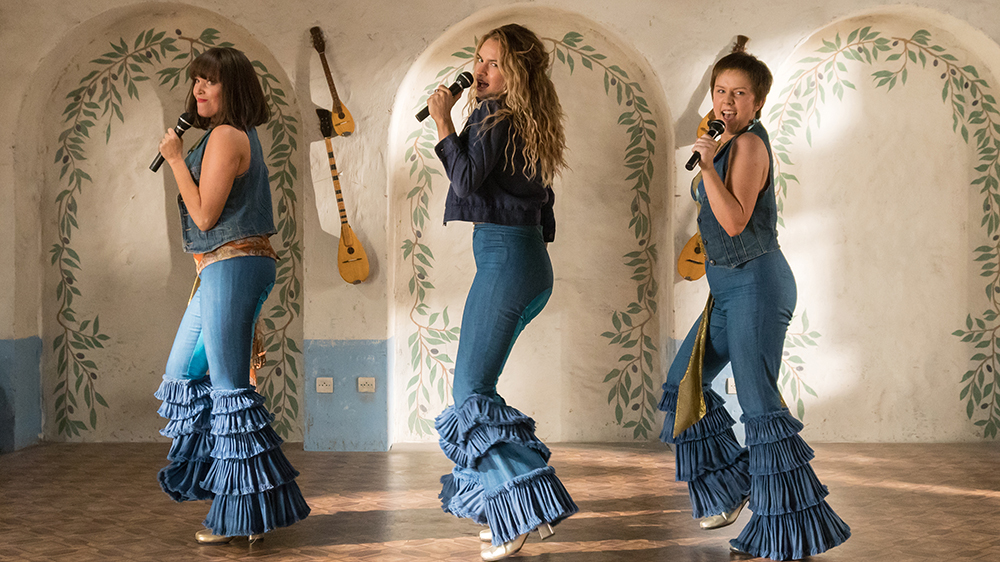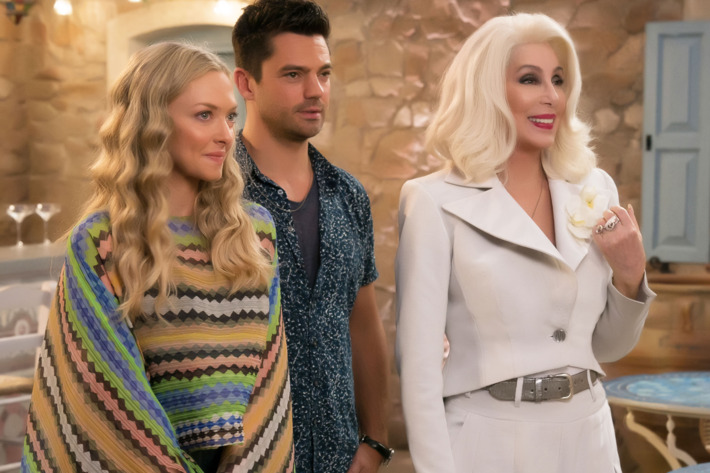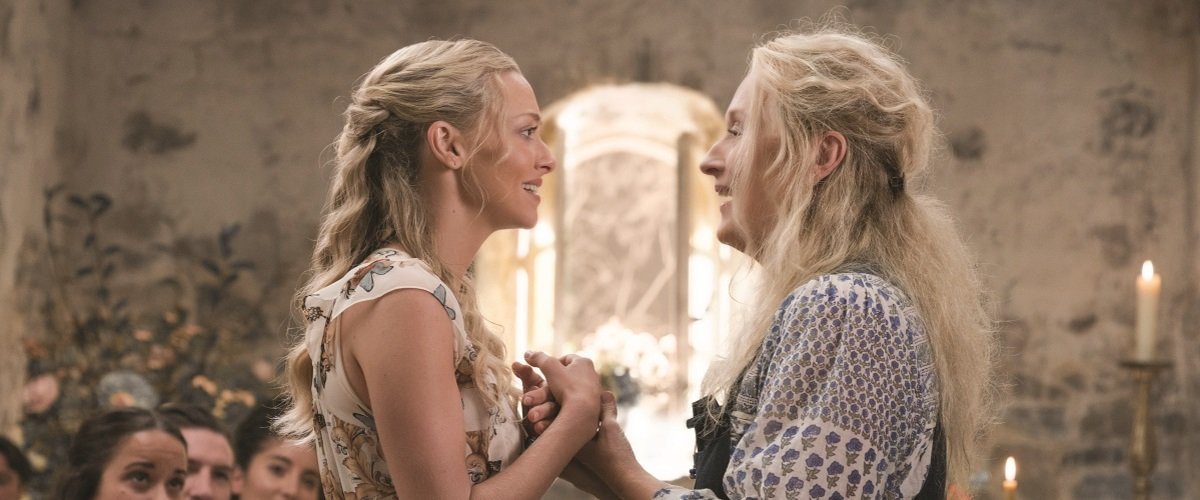by Jorge Molina

Almost ten years ago to the date, Mamma Mia! opened in theaters. The jukebox musical based on the theater phenomenon that at the same time was based on the biggest hits of Europop sensation ABBA went on to gross almost 600 million dollars globally, and became the highest grossing live action musical ever. That movie seems to be divisive among fans of the genre because of the fluffy, silly and often nonsensical joy that poured out of the screens (you can read about the emotional connection I personally have with the movie here).
Ten years and a Cher later, Donna and her Dynamos make a return to the island of Kalokairi with a sequel that doubles down on everything that made adamant fans of the first one fell in love with it, and made the skeptics roll their eyes...
There’s more established actors doing awkward dance moves, more and deeper ABBA singles, more shots of Greek cliffs and an extremely satirized color palette. But maybe there’s also more emotional depth and a welcome sense of escapism woven onto its flowy caftans as well… (SPOILERS AHEAD!)

Mamma Mia! Here We Go Again is both a sequel and a prequel of the first movie. In the “present-day” (which I put in quotations because the film fiddles with timelines, ages and dates as if it were a Greek harp), Sophie (played by an effervescent Amanda Seyfried, still the best singer in the cast) is getting ready for the grand opening of the Hotel Bella Donna, the small Greek villa that her mother Donna (a foreshadowed absent Meryl Streep, until she is not) built from the ground up.
The movie gets it out of the way pretty fast to confirm what studious fans had suspected ever since the first trailer came out. Donna has been dead for a year, and Sophie and stepfather Sam (Pierce Prosnan, who thankfully is given only one verse to talk-sing) are working their grief through this new business endeavor, along with visiting aunts and former best friends of her mother, Tanya and Rosie (Christine Baranski and Julie Walters, both precisely the right amount of too much and not nearly enough).
The prequel part retells the story that we heard in passing (or in song, actually) in the first movie, of how young Donna (played with effortlessness and vibrancy by the film’s stand-out Lily James) met the three men who would become the potential three fathers for Sophie, and ended up setting her roots in Kalokairi.
The movie balances both stories well, and the tone smoothly goes from a carefree buoyancy in which young Donna tries to find herself in Europe while the sun (and many men) kiss her skin, and the surprising melancholy of the present-day, in which feelings of legacy, mourning and loss weight heavy for a musical that has “Waterloo” set in a Napoleon-themed café.

Just as the first movie, the cast seems down with anything, and that sense of familiarity and fun translates into the performances, and the audience experience. I have long maintained that no cast has ever had more fun making a movie than the people in the first Mamma Mia!, and this is definitely an extension of that. No one is giving an award-worthy performance (though I’m ready to set my bets on Lily James as a Golden Globe nominee), but whether it is Colin Firth dancing in the mast of a boat, Christine Baranski giving her signature high kicks, or Amanda Seyfried delivering a heartfelt monologue, they all deliver what the material ask for.
And then there’s the Cher of it all. Appearing in what can be described as a glorified cameo, she takes the movie (and the devotion of the audience; my theater exploded in applause at her entrance) with her appearance in the last act, in which she performs perhaps the ultimate rendition of “Fernando” to Andy García.
Meryl does appear for an incredibly heartfelt last performance, in which she looks back at her life and legacy via ABBA’s “My Love, my Life.” Her presence is more than welcome but, weirdly, it never felt missed. Killing off Donna was a bold and potentially lethal move for the story (she is the titular Mamma, after all). However, the movie is still very much about her, and Lily James does such a great job at making the character come to life that we never feel the absence that her family definitely does after her death.

However, even if I just spent some paragraph dissecting the “craft” aspects of the movie, its biggest value relies (just as the first one) on what an enormous piece of joyful, mindless escapism it is. You may be hesitant at first, but I dare you to not even feel a rush of senseless delight at least one during the film. Maybe it is as you see Celia Imrie shaking a boa in “When I Kissed the Teacher”, or the flotilla of boats loaded with dancing people during “Dancing Queen”, or at the uncanny resemblance between Christine Baranski and her younger counterpart. Or, and this is the hardest one to resist of all, the credits sequence, as the entire cast performs “Super Trouper” dressed up in their best disco eleganza.
If you let the movie play its tricks on you, Mamma Mia! Here We Go Again will fill you up for two hours with joy, make you tap your feet and, just maybe, even take a tear of two or of you. I know it did for me by the end. But the movie never attempts to be something it is not: a big, frothy, candy-pop, incredibly entertaining and well made big-screen musical that will make you forget your troubles. And that, especially today, it’s my, my, so hard to resist.